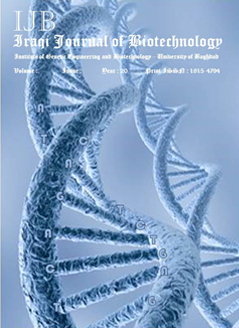Effect of Fusarium graminarum Silver-Nanoparticles on IL-10 and INF-γ Cytokines Levels in the Mice by Leishmania donovani in vivo
Abstract
Leishmaniasis remains one of the fatal diseases worldwide, and the conventional antileishmanial therapies are toxic and most are expensive. Biological silver nanoparticles possess broad-spectrum antimicrobial activities and could be a future alternative to current antimicrobial agents. In the present study an approach was made to synthesize silver nanoparticles (AgNps) using a Fusarium graminarum fungus. The present study it investigates the efficiency of silver nanoparticles against Leishmania donovani compared with pentostam drug in vivo by measuring the levels of immune cytokines (IL-10 and IFN-γ) in serum infected mice and treatment with AgNPs (0.1 ml / day) and comparisons with pentostam drug (0.01ml / day) after 21 days of treatment. The results showed that the level of IFN-γ in treating with AgNPs increased significantly in third weeks, compared to the pentostam group. When treated with pentostam/AgNPs together, there is a gradual decrease in the level of IFN-γ, compared with negative control. Also a significant increase occurs in the IL-10 level within 21 days when mice were treated with AgNPs compared with pentostam. It could be conclude that silver nanoparticles induce pro and anti-inflammatory cytokines also it safety, nontoxic and has a good anti-parasitic activity, it can be used as antileishmanial drug or can be used as supportive treatment of visceral leishmaniasis.


